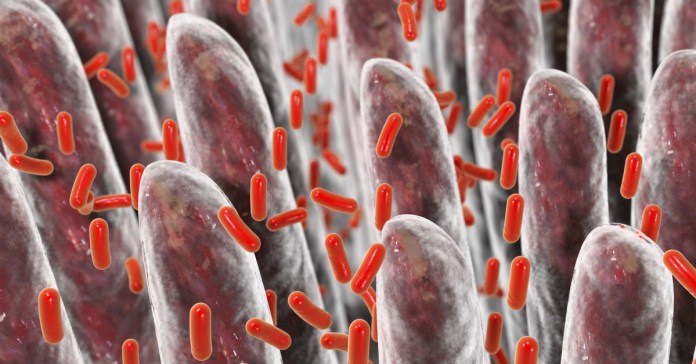Probiotics get so much attention. They have a serious health halo! In other words, probiotics are placed on a pedestal, even though people don’t know much about them. While they can definitely lend a hand, it’s not all cut and dry. There are things you should know before taking probiotics.
What Are Probiotics?
The gut has both good and bad bacteria. A balance is necessary for health, but sometimes, it gets thrown off. Probiotics, or good bacteria, are live microorganisms that replenish that balance. You can find them as supplements or in fermented foods.1
What You Need To Know Before Taking Probiotics
1. Not All Probiotics Are Equal

All probiotics aren’t the same. Lactobacillus strains act on the small intestine, while Bifidobacterium acts on the large intestine. If you’re taking antibiotics, you’ll need both types to replenish the balance.2 Lactobacillus can treat acne and urinary tract infections (UTI). It’s also used to fight Heliobacter pylori, a bacteria that causes ulcers.3 While bifidobacteria won’t help these conditions, it may help breast pain and hepatitis.4
Of course, there’s some overlap between the two types. For instance, they’re both used to lower cholesterol, boost the immune system, and treat vaginal yeast infections.
2. Neither Are All Probiotic Foods

While fermented foods offer probiotics, each one is different. It depends on the manufacturer, process, and even ingredients. For example, yogurt made with fruit increases the risk of spoilage, which kills off the good bacteria.5 And then there’s the type of food. Fermented products like yogurt, kefir, tempeh, and kimchi are all so different. The probiotic strains – and quality – will highly differ in each one.
3. You Need To Take Them Daily

The body doesn’t store probiotics. Otherwise, you wouldn’t be thinking of taking them in the first place! In the gut, it takes over and does its thing. Then it escapes through your daily poop. To get any kind of benefit, you’ll need to take it on the daily – or at least close to it.
4. … But Do It Slowly To Avoid Diarrhea

Wait, don’t probiotics treat diarrhea? While it’s true, taking too much too soon might mean trouble. Diarrhea is a common side effect if your body isn’t used to probiotics. Other possible side effects include bloating and gas.6
5. Microbe Count Matters

For any kind of benefit, you need to take enough. The recommended daily dose is 1 billion colony forming units, or CFU’s. Crohn’s disease and irritable bowel syndrome can handle up to 100 billion CFU’s. Check the label to see how many CFU’s you’re getting. Unfortunately, most brands label their products before processing, which actually kills bacteria. Choose foods that are as fresh as possible.7
6. Probiotics Do Expire

On that note, know that probiotics die. They’re live microorganisms, after all. Bacteria count takes a nosedive during storage. In fact, a 2012 study found that in just seven days, bacteria count in commercial yogurt significantly decreased.8
Keep supplements out of direct light. Buy probiotics that need refrigeration, as it extends the lifetime of bacteria.9
7. Probiotics Need Prebiotics

Probiotics can’t do it alone. They need prebiotics, or ingredients that enhance healthy bacteria growth. These often include fibers that aren’t digested until the large intestine.
Examples of prebiotics include honey, asparagus, bananas, oats, and onions. Plant sugars, or fructo-oligosaccharides, are also good prebiotics. You can find them in cereal, fruits, and veggies.10
8. Probiotics Can Cause Antibiotic Resistance

While probiotics lessen the effects of antibiotics, it may also work against you. Probiotics can take (and give) genes from other microorganisms. This includes antibiotic-resistant genes, which can be taken taken by probiotics… and given to the bad guys.
For instance, a 2013 study found that Lactobacillus and Bifidobacterium can carry tetracycline resistant genes. Tetracycline is an antibiotic used to fight bacterial infections, such as UTIs and chlamydia. Lactobacillus and Bifidobacterium can gift those genes to other bacteria, increasing the future risk of resistance. While the likelihood is low, it’s vital to keep in mind.11
9. They’re Not For Everyone

People with weak immune systems should use caution. One strain, Lactobacillus rhamnosus (L. rhamnosus), is linked to endocarditis,12 or inflammation of the heart’s inner layer.13 Those with pre-existing heart valve issues should also be careful.14
Check with your doctor before taking probiotics. She might have a recommendation based on your current health status. Finally, don’t forget to ask how much – and what kind – is best for you.
References





